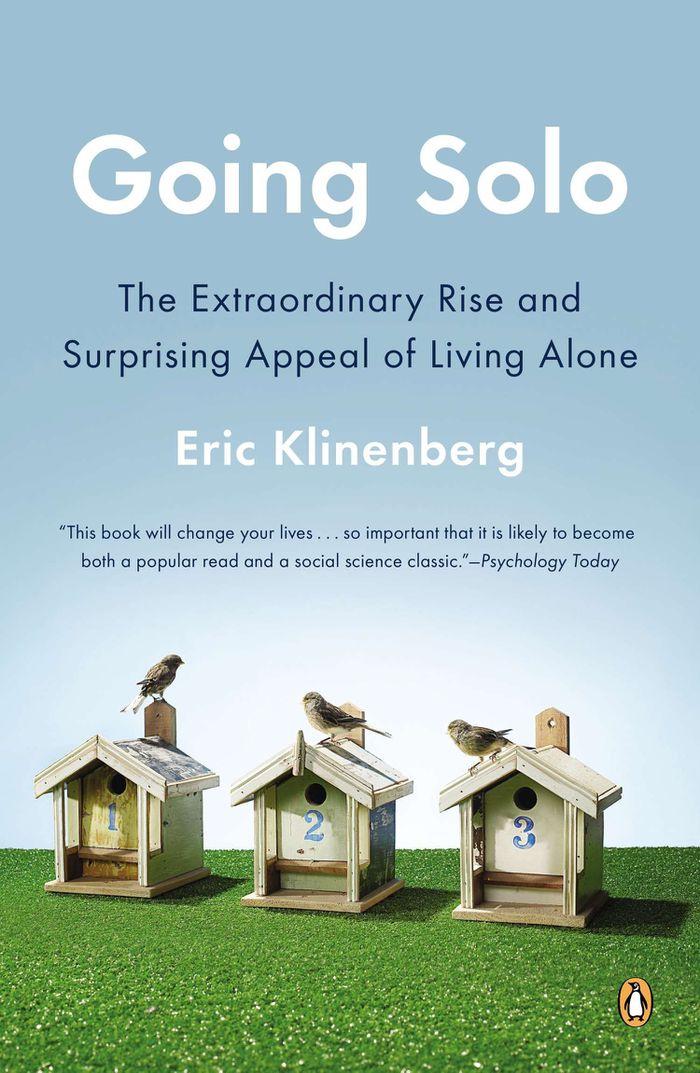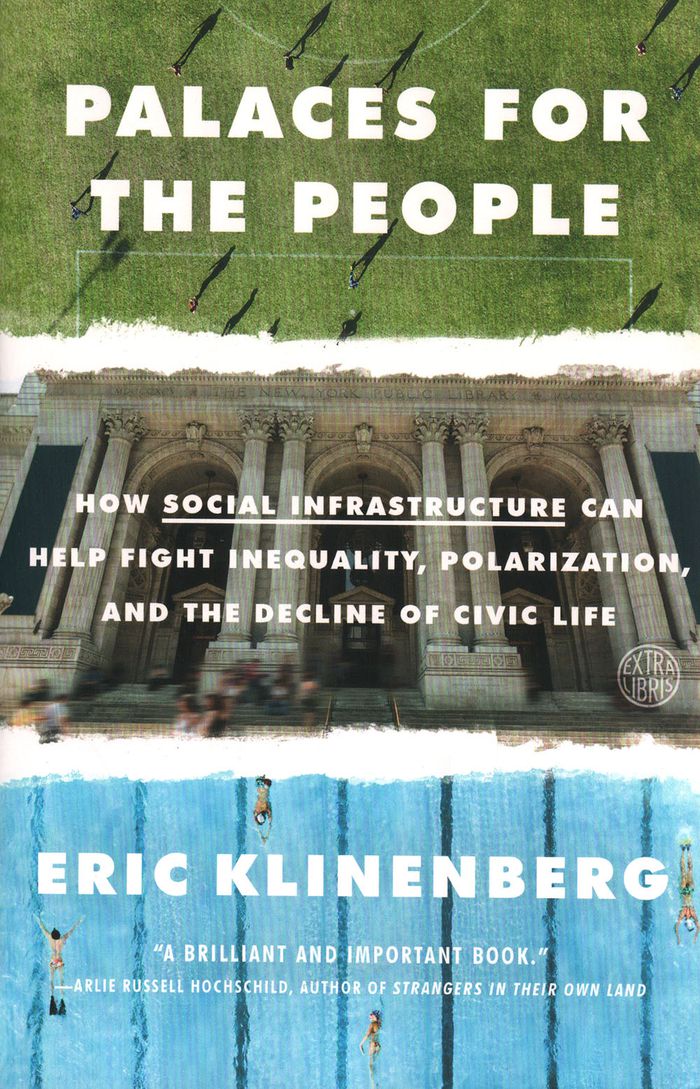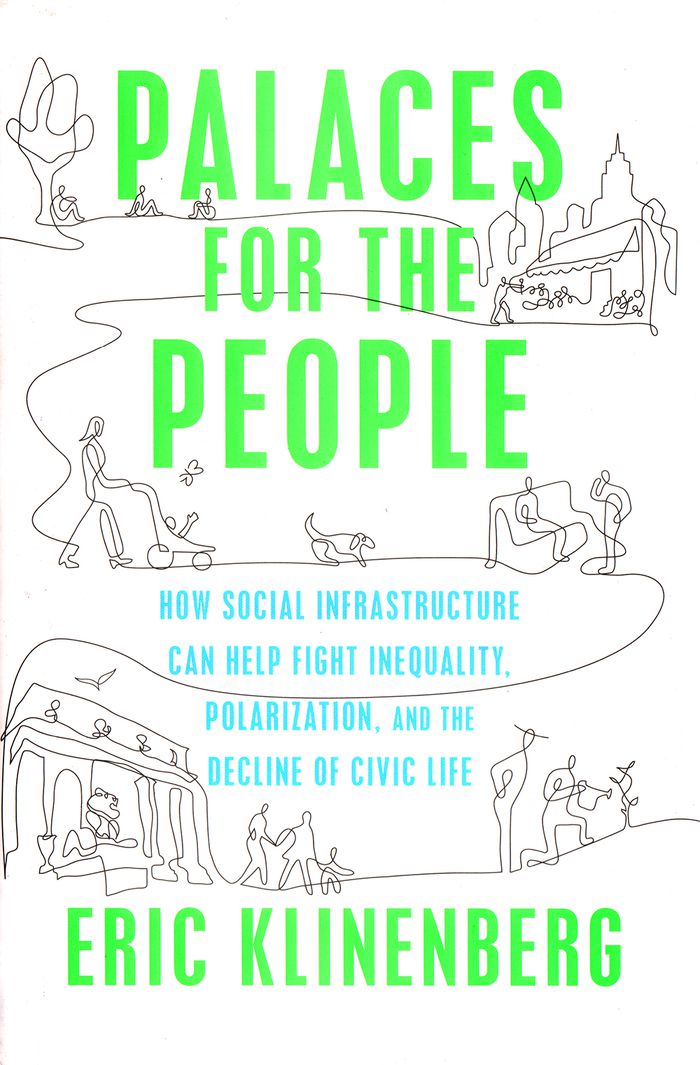$24.00
(disponible sur commande)
Résumé:
With eye-opening statistics, original data, and vivid portraits of people who live alone, renowned sociologist Eric Klinenberg upends conventional wisdom to deliver the definitive take on how the rise of going solo is transforming the American experience. Klinenberg shows that most single dwellers—whether in their twenties or eighties—are deeply engaged in social and(...)
Going solo: The extraordinary rise and surprising appeal of living alone
Actions:
Prix:
$24.00
(disponible sur commande)
Résumé:
With eye-opening statistics, original data, and vivid portraits of people who live alone, renowned sociologist Eric Klinenberg upends conventional wisdom to deliver the definitive take on how the rise of going solo is transforming the American experience. Klinenberg shows that most single dwellers—whether in their twenties or eighties—are deeply engaged in social and civic life. There's even evidence that people who live alone enjoy better mental health and have more environmentally sustainable lifestyles. Drawing on more than three hundred in-depth interviews, Klinenberg presents a revelatory examination of the most significant demographic shift since the baby boom and offers surprising insights on the benefits of this epochal change.
Social
Palaces for the People: How social infrastructure can help fight inequality, polarization, and the D
$24.00
(disponible sur commande)
Résumé:
Author Eric Klinenberg believes that the future of democratic societies rests not simply on shared values but on shared spaces: the libraries, childcare centers, churches, and parks where crucial connections are formed. Interweaving his own research with examples from around the globe, he shows how 'social infrastructure' is helping to solve some of our most pressing(...)
Palaces for the People: How social infrastructure can help fight inequality, polarization, and the D
Actions:
Prix:
$24.00
(disponible sur commande)
Résumé:
Author Eric Klinenberg believes that the future of democratic societies rests not simply on shared values but on shared spaces: the libraries, childcare centers, churches, and parks where crucial connections are formed. Interweaving his own research with examples from around the globe, he shows how 'social infrastructure' is helping to solve some of our most pressing societal challenges.
Théorie de l’urbanisme
$37.00
(disponible sur commande)
Résumé:
We are living in a time of deep divisions. Americans are sorting themselves along racial, religious, and cultural lines, leading to a level of polarization that the country hasn't seen since the Civil War. Pundits and politicians are calling for us to come together, to find common purpose. But how, exactly, can this be done? In ''Palaces for the People'', Eric Klinenberg(...)
Palaces for the people: how social infrastructure can help fight inequality
Actions:
Prix:
$37.00
(disponible sur commande)
Résumé:
We are living in a time of deep divisions. Americans are sorting themselves along racial, religious, and cultural lines, leading to a level of polarization that the country hasn't seen since the Civil War. Pundits and politicians are calling for us to come together, to find common purpose. But how, exactly, can this be done? In ''Palaces for the People'', Eric Klinenberg suggests a way forward. He believes that the future of democratic societies rests not simply on shared values but on shared spaces where crucial, sometimes life-saving connections, are formed. These are places where people gather and linger, making friends across group lines and strengthening the entire community. Klinenberg calls this the ''social infrastructure'': When it is strong, neighborhoods flourish; when it is neglected, as it has been in recent years, families and individuals must fend for themselves.
Théorie de l’urbanisme


